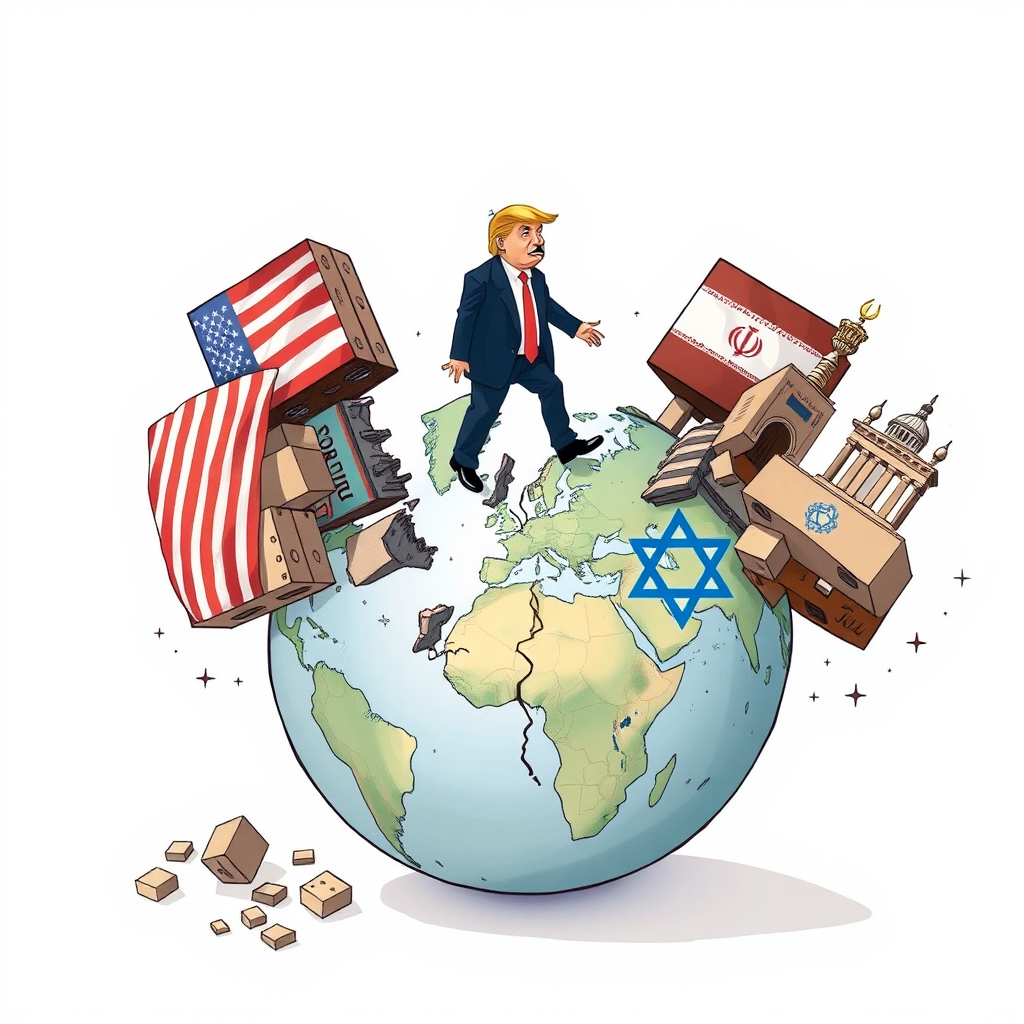Trump’s Base Fractures Over Israel and Iran

Donald Trump finds himself navigating a fractured political landscape as he responds to the escalating crisis in the Middle East, revealing deep fissures within his own base and forcing difficult calculations about maintaining support from key constituencies. While the Constitution clearly defines presidential powers regarding treaties, military command, and appointments, true influence often hinges on credibility and the ability to rally both domestic and international support – a challenge Trump currently faces.
Recent days have seen Trump oscillate between assertive statements – including claims of U.S. dominance over Iranian airspace and even suggesting the evacuation of Tehran – and hints of de-escalation, creating confusion and raising concerns among allies and opponents alike. This comes after a weekend marked by protests and a highly publicized military parade. The situation is further complicated by internal divisions within the Republican party and Trump’s broader base of support.
Several factions are vying to influence Trump’s approach. Traditional GOP figures, while largely silent during Trump’s initial criticisms of foreign entanglements, are insistent on maintaining unwavering support for Israel, a cornerstone of U.S. policy. However, a strained relationship with Israeli Prime Minister Benjamin Netanyahu adds another layer of complexity.
More concerning for Trump is the discontent brewing within his core MAGA base. These voters, drawn to his promises of ending foreign interventions and prioritizing domestic concerns, are increasingly uneasy with the prospect of renewed entanglement in the Middle East. Figures like Tucker Carlson, Marjorie Taylor Greene, and Rand Paul have voiced opposition to unconditional support for Israel, while some Republicans are actively pushing for restraint.
Trump also relies heavily on pro-Israel activists and the Christian Right, both of whom represent significant voting blocs. The pro-Israel lobby wields considerable influence in Washington, and Trump understands the importance of maintaining their support for his broader agenda. Similarly, many Evangelicals view unwavering support for Israel as a matter of religious conviction. Balancing the expectations of these groups with the isolationist leanings of his MAGA base presents a significant challenge.
Democrats, while largely united in their opposition to a nuclear Iran, are divided on the best course of action. Some, like Bernie Sanders, advocate for restraint, while others are wary of deferring entirely to Israel’s agenda. The Democratic party’s concerns are compounded by historical tensions with Netanyahu’s administration.
The situation demands a delicate balancing act. Trump must navigate these competing interests and forge a coalition that allows him to pursue a course of action that, while potentially satisfying some constituencies, risks alienating others. The crisis in the Middle East is not merely a foreign policy challenge for Trump; it is a test of his political agility and his ability to maintain the fragile coalition that brought him back to power. The coming days will reveal whether he can successfully reconcile these competing demands or whether the fissures within his base will widen, further complicating an already volatile situation.